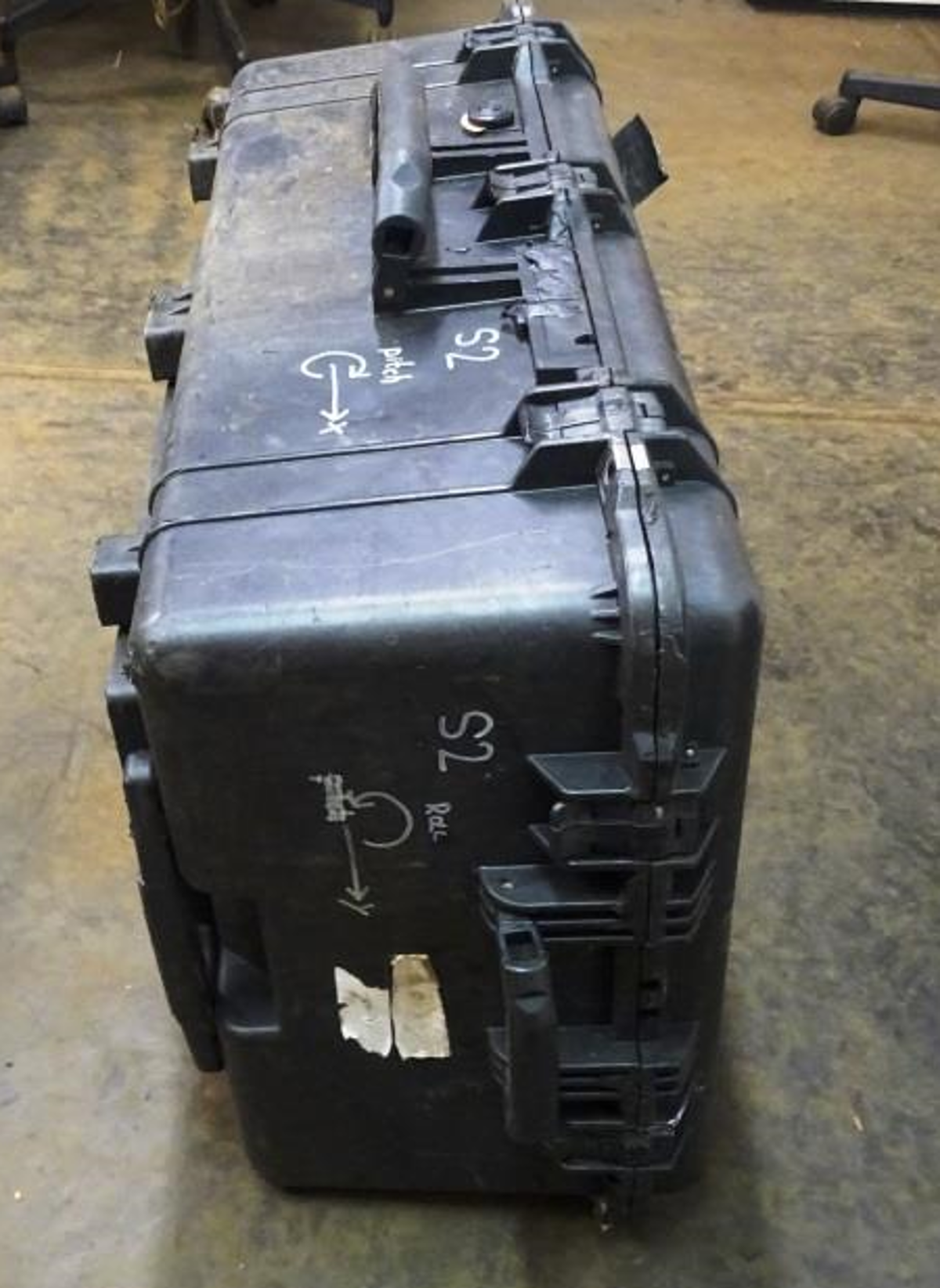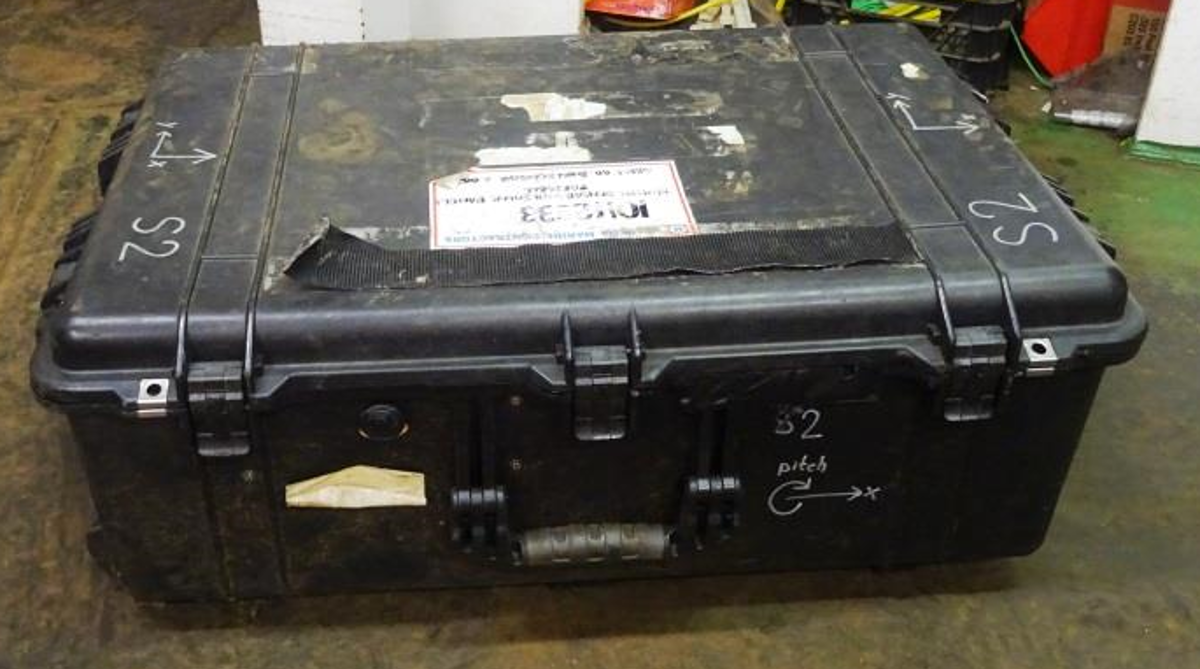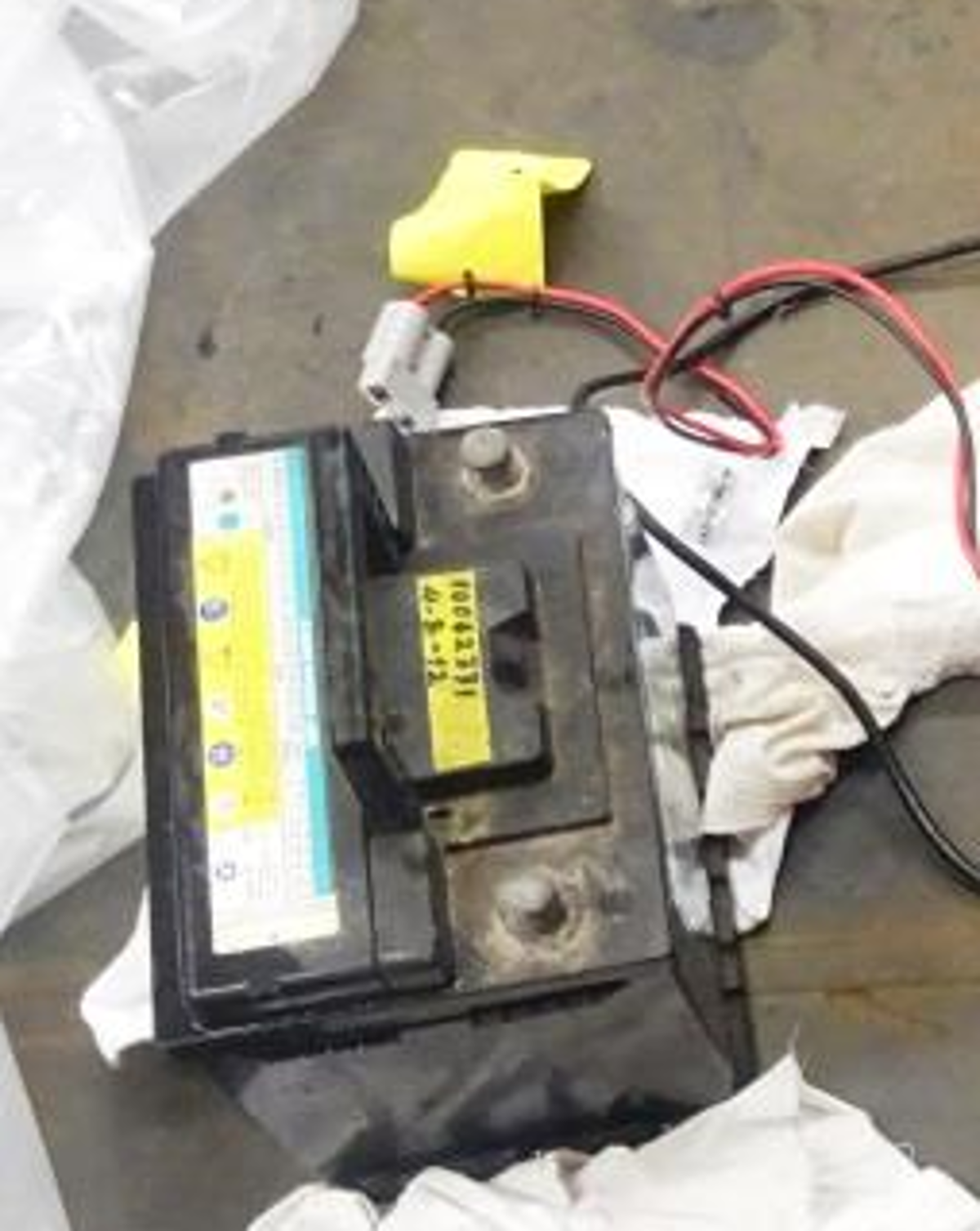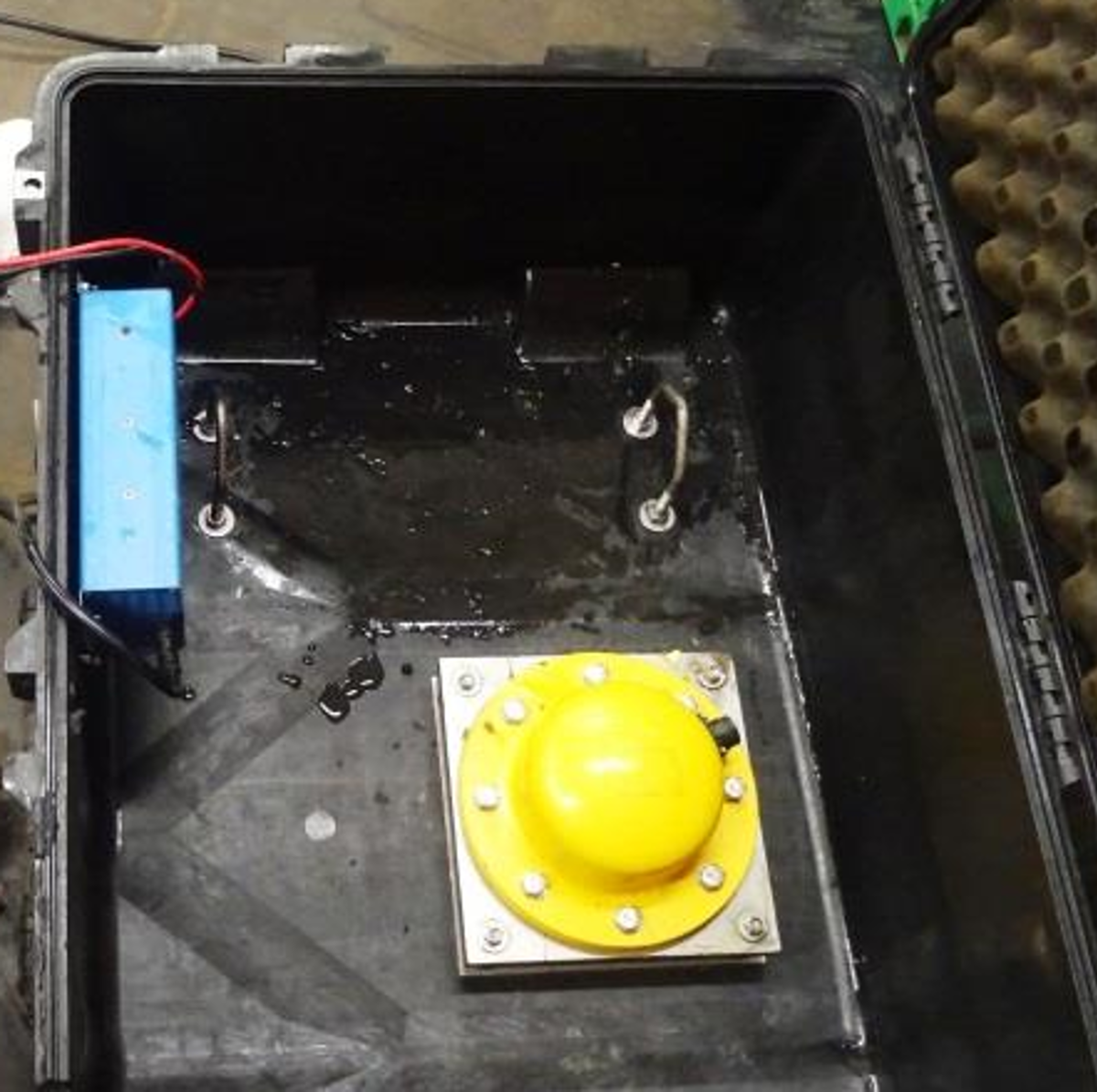‘Routine’ task, non-routine result: Batteries stored sideways leak battery acid
- Safety Flash
- Published on 23 June 2015
- Generated on 3 February 2026
- IMCA SF 09/15
- 2 minute read
Jump to:
A member has reported a near miss incident in which there was a spill of battery acid.
What happened?
An electrician had charged the wet cell batteries of two motion reference units (MRU), each contained in a plastic box. Once the charging was completed, the electrician closed the boxes and had to place them on the floor to wait for the next shift to test the equipment.
However, to limit the amount of floor space for storage the electrician placed the boxes on their sides, neglecting to remember that this improper orientation (batteries on their side) could allow the wet cell batteries to leak acid.
Crew on the following shift opened one case and noticed a smell, suggesting battery acid. Upon further inspection, the electricians noticed that battery acid had run out of the vents of the batteries in both plastic containers.
Had the circumstances been different, this could have been a very serious incident.

no labelling on container indicating proper storage instruction or hazards of contents

no labelling on container indicating proper storage instruction or hazards of contents

location of vents permitting acid to leak out of battery when improperly stored

extent of acid spill
Findings
Our member’s investigation noted the following:
- A wet cell battery with vents would permit leakage of the battery if stored improperly.
- The containers were stored on their sides; the electrician forgot that in doing this, the batteries might leak.
- The battery containers were not labelled to provide information regarding.
- Which way up they should be stored.
- What was inside – the possible hazards of wet cell batteries.
- Which way up they should be stored.
Lessons learned
The lessons learned are:
- Boxes and containers should be clearly labelled so all crew know which way is up and any hazards relating to what is inside.
- This should particularly be the case for containers used for batteries.
- Consider replacement of the wet cell batteries with dry cell batteries – thus eliminating the hazard of an acid spill.
Related safety flashes
-
IMCA SF 05/13
4 April 2013
-
IMCA SF 01/02
1 January 2002
IMCA Safety Flashes summarise key safety matters and incidents, allowing lessons to be more easily learnt for the benefit of the entire offshore industry.
The effectiveness of the IMCA Safety Flash system depends on the industry sharing information and so avoiding repeat incidents. Incidents are classified according to IOGP's Life Saving Rules.
All information is anonymised or sanitised, as appropriate, and warnings for graphic content included where possible.
IMCA makes every effort to ensure both the accuracy and reliability of the information shared, but is not be liable for any guidance and/or recommendation and/or statement herein contained.
The information contained in this document does not fulfil or replace any individual's or Member's legal, regulatory or other duties or obligations in respect of their operations. Individuals and Members remain solely responsible for the safe, lawful and proper conduct of their operations.
Share your safety incidents with IMCA online. Sign-up to receive Safety Flashes straight to your email.